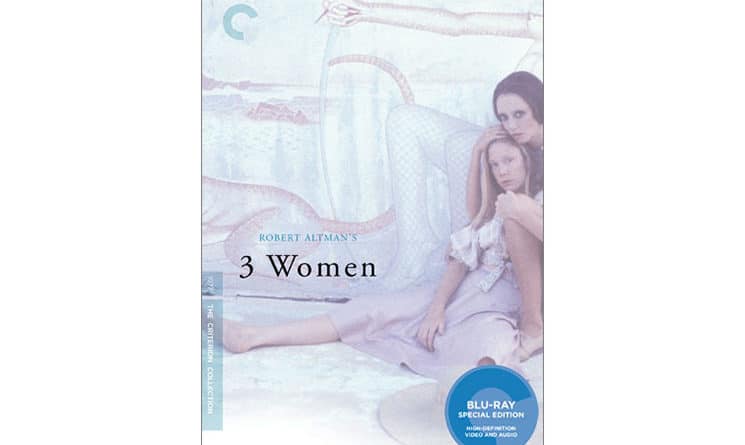“3 Women”
20th Century-Fox, 1977
Starring: Shelley Duvall, Sissy Spacek, Janice Rule, Robert Fortier
Directed by: Robert Altman
The plot: Pinky (Spacek), an awkward mouse of a girl, begins a new job at a spa for the elderly in a dusty, desolate, desert town in California. There she meets Millie (Duvall), a sassy, confident co-worker. Both are Texans; they strike up a friendship and are soon roommates. The landlord of their apartment building is a washed-up cowboy named Edgar (Fortier), whose pregnant wife Willie (Rule) paints bizarre and intense murals. As tensions mount between Pinky and Millie, Pinky attempts suicide and goes into a coma. When she awakens, she and Millie begin to assume each other’s personality.
Why it’s good: Robert Altman directed some 35 motion pictures, but rarely contributed to the screenplays. This original script, penned without collaborators (like his unsettling “Images”), came directly from a dream he had. “Dream-like” can be a hackneyed term, but Altman clearly set out to capture that “unconscious waking” feel in this excellent film. Spacek has been amazing from the very start of her career; Duvall and Rule are too often under-rated (although Duvall did pick up several awards for this performance, including a best actress win at Cannes). A pretty setting lends itself well to impressive footage, whether mountainous, coastal, or tropical. To take the beauty of the French countryside, the New England coast, or, in this case, the California desert, and render it sinister takes some creativity. Altman is the master in this world he’s created, conceiving, writing, producing, and directing (although he would be the first to admit that all of his scripts were simply preliminary to on-set cast input). Roger Ebert named “3 Women” the best film of 1977.
The legacy: Words like “maverick” and “subversive” are always within reach when discussing Altman, but few filmmakers enjoyed such a varied career, along with its considerable highs and lows. Altman practically pioneered multi-track recording of dialogue and a highly mobile camera to complement it (critic Pauline Kael was a huge admirer). Altman was one of many fine directors in this “Golden Age” of the ’70s — Coppola, Scorsese, De Palma, Ashby, among them — working with an artistic freedom bestowed by the major studios that would be unthinkable today. (This era is comprehensively chronicled in Peter Biskind’s much-maligned but first-rate book, “Easy Riders, Raging Bulls.”) Altman created some truly great movies (“M*A*S*H,” “McCabe & Mrs. Miller,” “Nashville,” “The Long Goodbye”) and some less-than-stellar ones, but all were accomplished and worthy of notice. He was already planning his next project when he died in 2006 at age 81. For nearly three decades, “3 Women” was unavailable on home video, but the film was finally released on DVD in 2004 by the Criterion Collection with a feature-length commentary by Altman.

